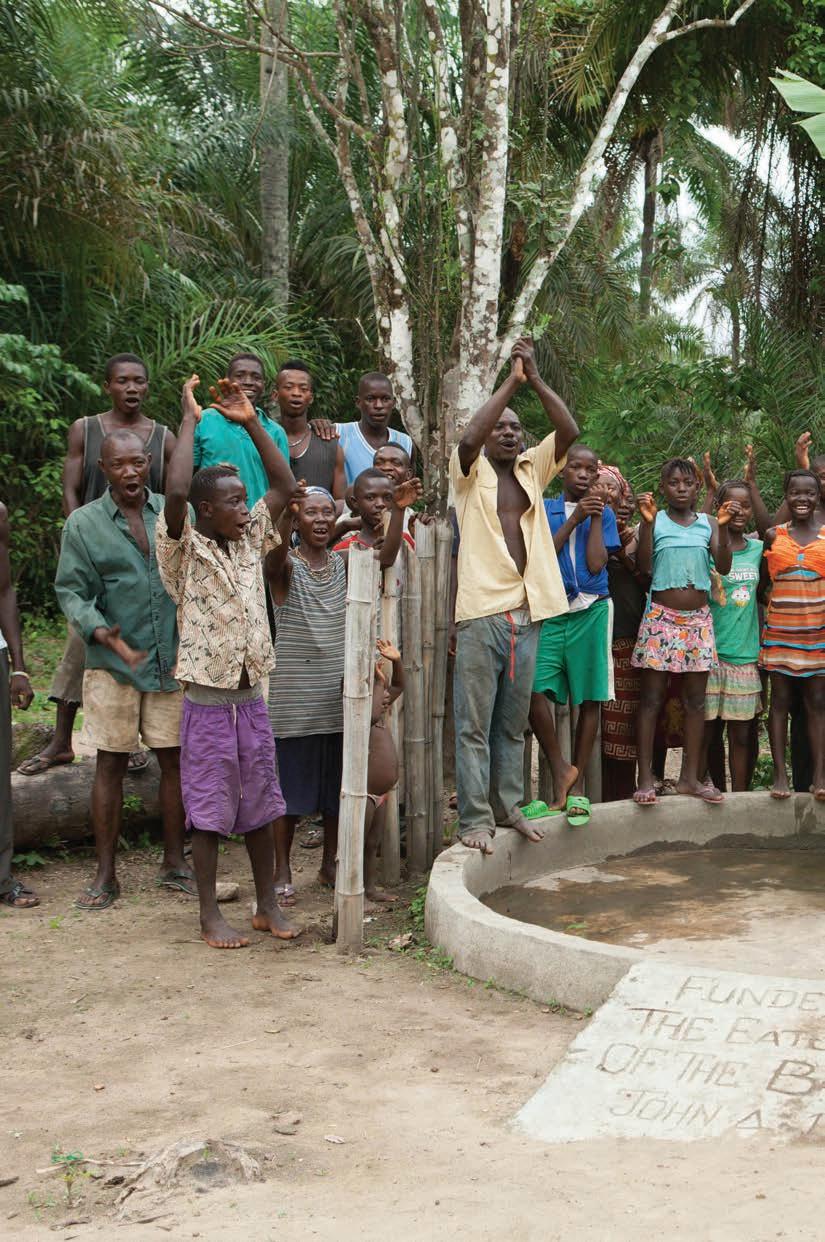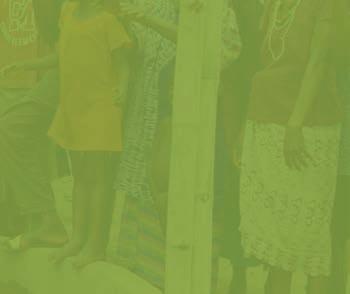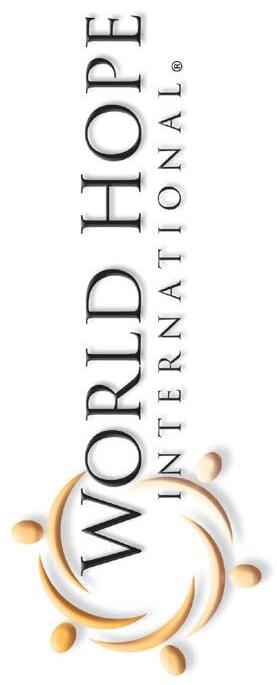RESTORING OPPORTUNITY, DIGNITY, AND HOPE







Alleviating Poverty, Suffering, and Injustice Around the World.



According to the U.S. Agency for International Development, more than 748 million people lack access to clean or improved drinking water. About 2.5 billion lack access to proper sanitation. Without these essential needs, these vulnerable people are at risk of disease, malnourishment, and death.




But World Hope



International is ready to take action and bring those most vulnerable the resources and knowledge necessary to provide for themselves now – and for the future.

The tide is turning for our brothers and sisters in West Africa. Ebola transmissions and deaths in Sierra Leone have dropped dramatically from their peak last summer. Health officials are cautiously optimistic that this terrible outbreak may soon be contained. We are not out of the woods yet, but communities are starting to break free from the tragedy and rebuild.
I am enormously proud of the work World Hope International has done in the wake of the Ebola epidemic — the worst crisis in Sierra Leone since the civil war. And, I am immensely grateful to compassionate friends like you who make our efforts possible. Your prayers and generous support have saved more lives than we can count.
But we still have a long way to go in Sierra Leone. The epidemic has devastated the country’s health care system, leaving people without the basic medical care they need to survive. It has halted Sierra Leone’s fragile economic recovery after years of civil war, deepening poverty and hunger. Schools that closed during the worst of the outbreak have yet to reopen. Thousands of children have been orphaned by the disease and many are all on their own.
most in need.
That’s why, as the epidemic wanes, WHI is committed to supporting the long-term recovery of Sierra Leone and rebuilding those communities most in need. And we will not rest until opportunity, dignity, and hope have been restored.
Children are always most vulnerable in a humanitarian crisis. We are working on the ground in Sierra Leone to identify and protect Ebola orphans who are now at risk of sexual exploitation, child labor, and forced marriage. We are reuniting these children with surviving family members or finding other safe homes to place them in, and making sure their physical and psychological needs are met.
WHI is also scaling up our well-drilling operations to provide more communities with clean, safe water, which will help strengthen Sierra Leone’s resilience to disease and increase food production. And, we are expanding our agricultural development programs that are providing the country’s poorest families with a life-changing source of income.
Throughout the Ebola crisis, friends like you have been so giving. Now, as we start to rebuild and find the “new normal,” I hope you will walk alongside us as we continue our work to bring economic prosperity to the neediest places on Earth.
Thank you for your continued support,
 John Lyon CEO & President
John Lyon CEO & President
…WHI is committed to supporting the long-term recovery of Sierra Leone and rebuilding those communities
Using a holistic, grassroots approach, World Hope International provides a voice for the silent, an opportunity for the oppressed, and water for those who thirst. Here are a few of the ways we are empowering the world’s poorest and most vulnerable people to build lives of opportunity, dignity, and hope — and brighter futures for their children:

WHI is working in Liberia, Cambodia, Sierra Leone, and Azerbaijan to combat human trafficking and provide safe spaces for the victims of sexual slavery — many of them young children. In Sierra Leone, we run the country’s first recovery center for girls subjected to rape, sexual slavery, or forced labor. Our shelter in Cambodia has provided more than 1,100 brave girls with both immediate aftercare and long-term physical, psychological, and spiritual care as they heal. In Azerbaijan, we conduct community outreach and educational programs to equip those most vulnerable to traffickers with the information they need to protect themselves.
This year, WHI has started a new program to prevent human trafficking along the border between Sierra Leone and Guinea, and is pursuing new opportunities in key areas of Liberia, the Philippines, and the United States to train families, community leaders, and law enforcement personnel to identify the signs of human trafficking and keep it out of their communities.
Agriculture is Sierra Leone’s primary source of livelihood. But, in the wake of the Ebola crisis, many farmers have been too sick to work, causing food shortages and deepening poverty. WHI’s innovative agricultural development projects are empowering poor families to rebuild their lives and their country.

Our affordable greenhouses project is helping farmers reduce their water consumption and grow crops year-round, reducing Sierra Leone’s “hungry months.” And our mango, pineapple, and papaya projects have created economic opportunities for more than 5,000 small holder farmers. Now, these farmers are earning enough income to provide their families with three nutritious meals a day, send their children to school, pay for medicine when needed, and save for a better future.
In Mozambique, WHI is distributing cattle to the rural poor, along with providing training in animal husbandry. The cows can be used for plowing, provide a steady supply of nutritious milk, or sold to generate income and
help farming families escape the cycle of poverty. Once the cattle give birth, a certain number of offspring are passed on to another impoverished family in the community, creating a sustainable cycle of positive change.

According to UNICEF, at least 16,600 children in Guinea, Liberia, and Sierra Leone have lost one or both parents or their primary caregivers to Ebola. While some of these children have been taken in by surviving relatives or community members, many more have been left without homes and other basic necessities. These unaccompanied children are at increased risk of human trafficking, sexual abuse, hunger, and violence.

WHI understands that access to clean water and sanitation saves lives. Throughout the Ebola outbreak, WHI was still on the ground, drilling clean-water wells at hospitals and remote health clinics, and established community washing stations to fight the spread of infection. As Ebola cases decline, sustaining these efforts will be critical to improving the health of Sierra Leone and reducing the likelihood of another outbreak.
We have also developing new cleanwater projects in Liberia and continue to drill about 30 borehole water wells in Mozambique each year. Each well we dig or latrine we build means less illness and death, especially for children, who are most vulnerable to disease. By training community members to maintain the wells and latrines, we ensure they will continue to provide clean water and sanitation for years to come.
WHI staff are working directly with the government of Sierra Leone to identify, protect, and support these vulnerable youths. Using the ambulance network we created to bring Ebola patients from remote areas to medical centers, we are transporting orphaned children to generous families who have stepped up to take them in. We are also intervening to ensure these children are safeguarded from vulnerabilities like sexual violence and exploitation, forced marriage, and child labor.
From our innovative agricultural projects to our programs for survivors of sexual slavery and trafficking, World Hope International has grabbed the attention of major national and international news outlets. Here are a few snapshots from our recent news coverage:

“The center acted as a catalyst for stronger church involvement — those who had once told me that they viewed human trafficking as an unspeakable evil now saw the potential for hope and healing. Stories of restoration from the center — former victims now healthy, happy, and working at restaurants, bakeries, and dataprocessing centers — inspired more people in the church to take action.”
— Jo Anne Lyon, WHI Founder OnFaithBy empowering these farmers to participate in sustainable business practices and by providing them with financial opportunities not available to them before, the program tackles trafficking head on by limiting the economic power traffickers use to coax their victims.
-JohnLyon,WHICEO&President CNNFreedomProject: Pineapple Program Fights Traffickers in Sierra Leone“Women especially are benefitting from [Planting Pineapples, Harvesting Hope] as they learn how growing a year-round crop like pineapple provides year-round income, which in turn means year-round spending money for food, health, and education, enabling mothers to provide for their children.”
— Jo Anne Lyon, WHI Founder




